Governance
Governance is a hot topic across the sector at the moment, with academies under ever increasing scrutiny. Now more than ever, it is imperative all Academy Trusts ensure they have a good system of governance in place, to ensure robust and effective management of the school. There have also been a number of schools where ultimately, poor governance has been the focus of EFA investigations and governance is now also a major feature of Ofsted inspections.
Griffin has extensive experiene working hand in hand with academies to ensure the systems they have in place are robust.
Aim of the Governing body
The responsibilities of a governor increase significantly on becoming an academy. This is because they become both company directors and charity trustees of the academy trust. With these positions come additional obligations under both company and charity law.
The EFA Governance handbook states that your governing body should focus on three core strategic functions:
- Ensuring a clear vision, ethos and strategic direction
- Holding the headteacher to account for the educational performance of the school and its pupils, and the performance management of staff
- Overseeing the financial performance of the school and making sure its money is well spent.
These functions are reflected in the criteria that Ofsted inspectors use to judge the effectiveness of governance in schools.

The elements of a successful Governing body
Understanding their strategic role
The Governing Body needs to build a productive and supportive relationship with the headteacher while holding them to account for school performance and taking hard strategic decisions in the light of objective data
Having the necessary skills and commitment
This includes the ability to challenge the school, bring about improvement and hold leaders to account for performance
An effective chair
To lead and manage the governing body as well as evaluating their performance regularly in the light of Ofsted expectations and other good practice and making changes as necessary to improve their effectiveness.
Governors should be committed to asking challenging questions, should develop good relationships based on trust and should know their school, its staff, pupils and local community.
The National Governors Association (NGA) says the academies programme has brought more autonomy to schools so governing boards have more responsibility than ever and need training.
How we can help
We have experience of working with many academy clients at board level and can provide help and support to improve the Governance of your school. We can provide training, both to ensure that your governors fully understand their role, as well as to equip them with the knowledge to more effectively challenge school leadership.
We can provide support in areas such as:
- Governor training
- Establishing a risk register
- Responsible Officer testing
- Reviews and recommendations on systems and internal controls
- The structure of an academy or Multi Academy Trust (MAT) board and the requirement for specific committees
- The implications of joining with other schools to become a MAT, including financial due diligence work to ensure protection of academy assets and fund balances
- Compliance with the academies financial handbook






